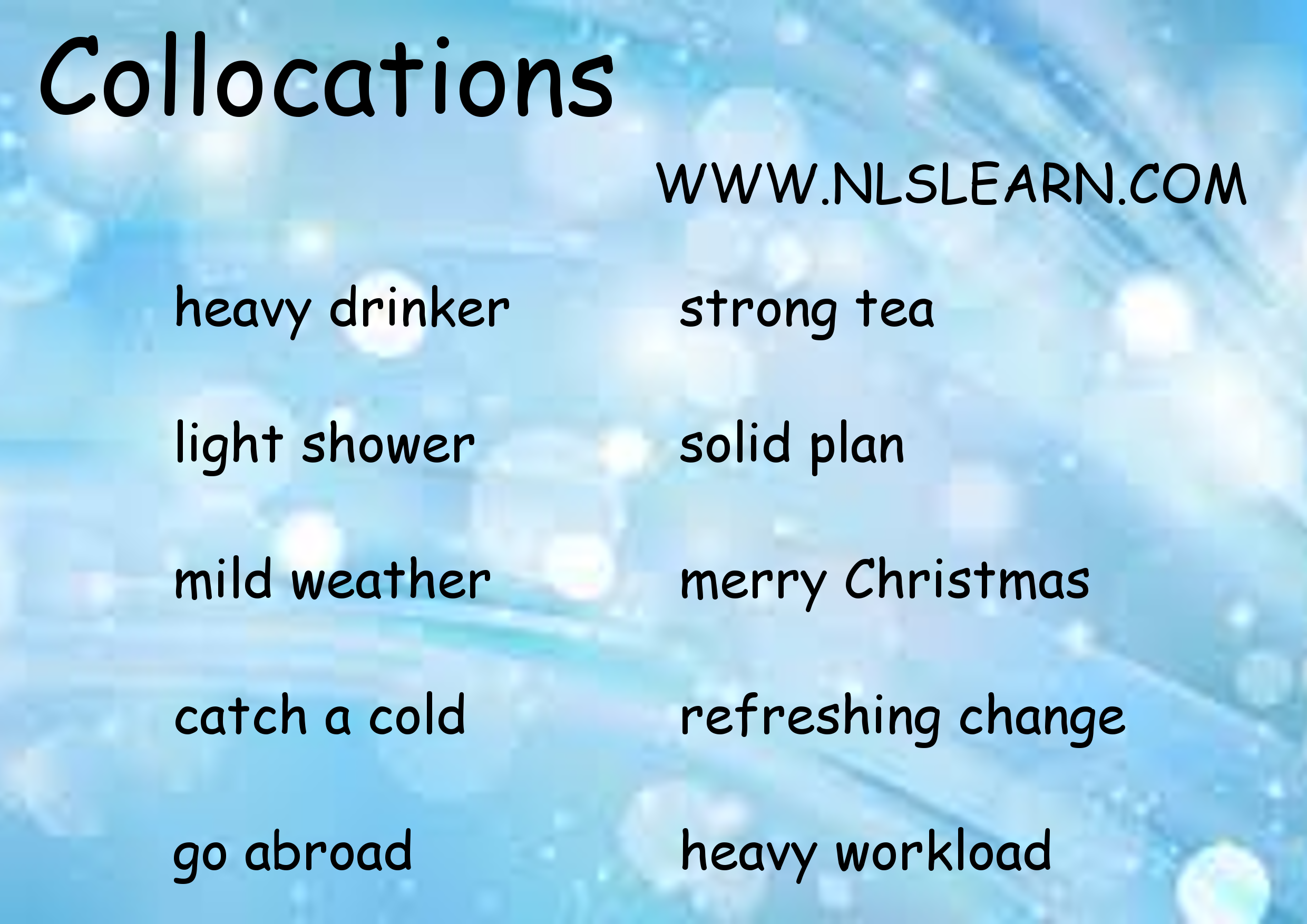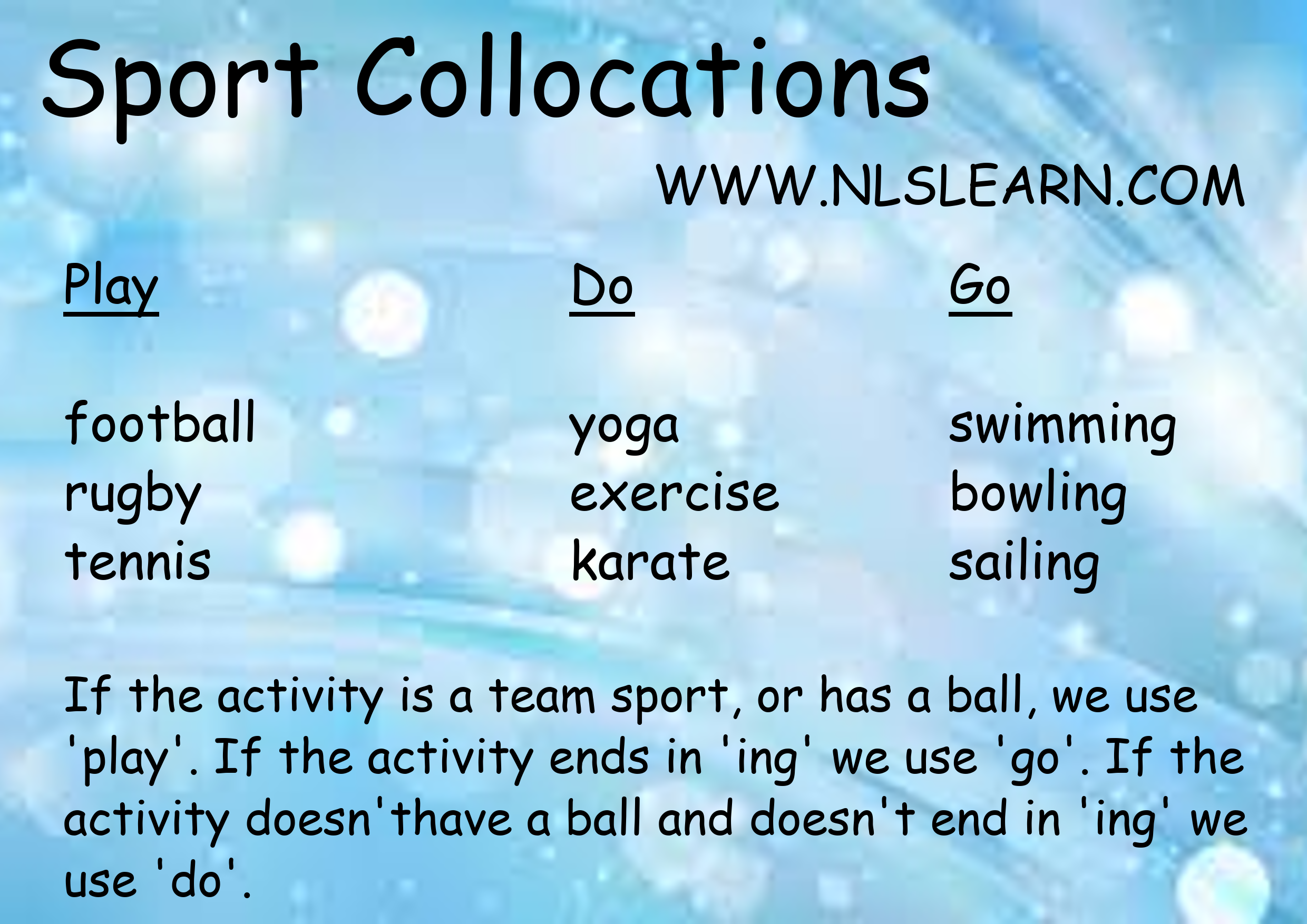Understanding Collocations: Boost Your English Fluency with Common Word Pairings

Collocations
Collocations are combinations of words that frequently occur together in a language and sound natural to native speakers. Mastering collocations is crucial for achieving fluency and sounding more like a native speaker. Common examples of collocations include phrases like "make a decision," "strong coffee," and "take a break." These word pairings are commonly used together and are often predictable within a language.
Example sentence:
I can't go out for a drink tonight, I have a heavy workload and need to catch up.
Types of Collocations
Collocations can be categorised into various types, such as:
- Verb + Noun: "Make a decision," "take a break"
- Adjective + Noun: "Strong coffee," "heavy workload"
- Noun + Noun: "Traffic jam," "credit card"
- Adverb + Adjective: "Highly successful," "deeply concerned"

Importance of Collocations
Learning collocations is essential for several reasons:
- Natural Speech: Using collocations correctly makes your speech and writing sound natural and fluent.
- Improved Comprehension: Understanding collocations helps you better comprehend conversations, articles, and other written texts.
- Effective Communication: Collocations enhance your ability to express ideas clearly and accurately.
A1/A2 Level Collocations
1. He is feeling ___ today.
2. She had a ___ breakfast.
3. He has a ___ workload today.
4. She enjoys a ___ shower in the morning.
5. I always ___ breakfast at 8 AM.
B1/B2 Level Collocations
1. She was ___ concerned about the news.
2. He needs to ___ a decision soon.
3. I could ___ believe my eyes.
4. She needs to ___ more attention to detail.
5. We should ___ for a walk later.
Conclusion
Collocations are a vital aspect of mastering the English language. At NLS Learn, our personalised lessons focus on helping you understand and use collocations effectively, improving your overall fluency and comprehension. Whether you are preparing for an exam, enhancing your professional communication skills, or simply looking to speak more naturally, learning collocations is a key step in your language journey.




